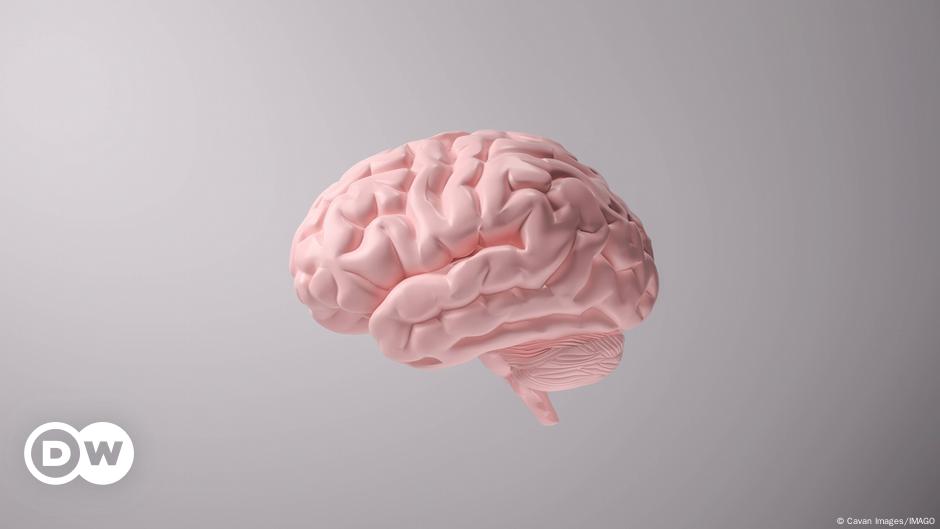Life has its impact on our brain. Our brain cells wear and tear over the years, causing our brain to slow down, become forgetful, and slow down.
But it is not clear whether this decline is due to the passage of time or is predetermined by genes.
Now, a major set of scientific reviews have been published in the journal neuron The study seeks to answer these questions by taking stock of the current understanding of brain aging, and how age-related cognitive decline and the risk of neurodegenerative diseases such as Alzheimer’s disease can be reduced.
It found that several physical and biological changes are responsible for brain deterioration, which can influence long-term cognitive decline.
And with 152 million people predicted to live with some form of cognitive decline by 2050, finding solutions to those questions has become increasingly important.
What causes brain aging?
“We are understanding the nuances of aging. Over the past 25 years, important factors have been identified through molecular studies,” said Costantino Iadecola, a neurologist at Weill Cornell Medical College in the US, who authored a review on it. Led on how the brain’s vascular system impacts aging.
According to these reviews, the major causes of brain aging are both physical and biological.
Aging causes physical changes through a reduction in brain volume and changes in the size of structural folds – our brain literally shrinks.
Biological factors that contribute to the decline in cognitive health include DNA damage, what Ideokola calls “base-level inflammation” in the brain, and the brain’s ability to clear waste.
Another review highlighted how the brain’s immune system becomes less “fit” in old age, leading to poor brain health.
In a review, neuroscientist David Rubinstein of Cambridge University, UK, described waste protein clearance as an important driver of aging and age-related cognitive decline.
As we age, our brain cells become less efficient at clearing harmful waste proteins, which damage cells and disrupt brain function.
Tau protein is a damaging protein that is linked to several neurodegenerative diseases, including impact-related issues like Alzheimer’s, dementia, and chronic traumatic encephalopathy (CTE).
“Buildup of tau proteins causes the neurodegenerative disease Alzheimer’s disease, so there are clear links between protein clearance mechanisms and neurodegenerative diseases. But we know less about how they contribute to the normal cognitive decline in aging,” Rubinsztein told DW. How to influence.”
Scientists are still pondering the fundamental questions of aging
A recent survey found that scientists who study aging cannot agree on some of the fundamental questions challenging the field: What is aging? what causes it? When does it begin?
“These are questions people have been asking for centuries. It’s even discussed in the Bible,” Iadekola told DW.
But that’s one of its purposes neuron Reviews – to highlight what scientists still don’t know.
Rubinstein said part of the problem the field faces is the over-focus on studying the cognitive decline manifested by pathologies such as stroke, Alzheimer’s disease, or Parkinson’s disease, rather than how healthy brains develop these problems.
“We need to understand what age-related cognitive decline really is in the absence of disease. We don’t have an answer to what normal cognitive decline is in the absence of dementia,” Rubinsztein said.
Will we ever be able to slow down brain aging?
Scientists are beginning to get a handle on how to boost our brain health as we age.
It has long been known that a set of lifestyle choices reduce the risk of dementia and age-related cognitive decline, these include:
Scientists like Iadecola also argue that genes play a key role in determining how our brain ages from the moment of conception.
“Eliminating toxins through diet, exercise, quitting smoking, etc. have a huge impact on how we age. However, genetics is the fundamental factor that determines how we age,” Iadecola said.
“You can make aging worse by taking risks like smoking, but you can make it a little better by avoiding those risks.”
Essentially, this means that a healthy lifestyle cannot reverse the brain’s tendency to age, but a poor lifestyle can accelerate the aging process.
Iadekola is not an enthusiastic scientist who would be able to treat aging as a disease or artificially prolong life.
He said, “Aging is part of the human condition and there is a limit to how long we can age. That limiting factor is our genes. There are a number of factors that increase life expectancy beyond about 120 years.”
Edited by: Matthew Ward Agius
sources say
Disagreement over the fundamental principles of biological aging
Autophagy, aging, and age-related neurodegeneration.
DNA damage and its relationship to neuronal aging and degeneration.
Pathobiology of neurovascular aging: advances and implications for cognitive health.






Leave a Reply